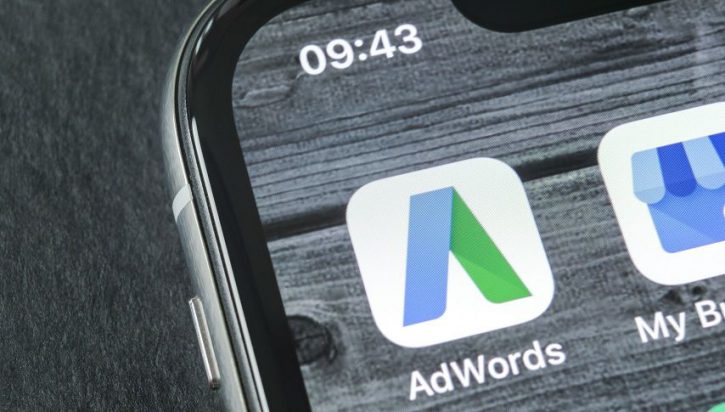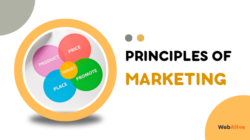
How AI Is Changing the Future of AdWords
Artificial Intelligence has become a buzzword over the last decade. Though the concept of AI is a lot older, we have only recently gained enough computing power and data to put it to more practical use.
One of the most powerful capabilities of AI is to analyze a huge amount of data and find complex correlations which would be impossible for a human to figure out. This makes AI an effective tool for the digital marketing industry.
In this post, we’ll explore how AI is steadily making an entrance into AdWords – the industry-standard paid advertising tool from Google – and what that means for the future of human PPC managers.
The Beginning.
Google introduced the first significant automation in the AdWords platform back in 2007. The Conversion Optimizer was a CPA bidding tool to automate the bidding process.
Then in 2010 Google announced Enhanced CPC. This feature analyses the historical conversion data to automatically adjust the max CPC bid. Google removed max CPA in 2014 and by 2017 they had also removed the 30% bid increase limit.
By taking these steps, Google encouraged AdWords users to trust the machine more and let AI make many decisions for them.
Automated Ad Testing.
Google’s responsive search ads, a feature currently in beta, allows you to run A/B testing for ads very easily. This is one example of how AI is going to change how AdWords work in near future.
You can now submit several variations of ad texts and headlines, and Google will automatically combine these to produce different ads and find which combination brings you more clicks.
From April 30th, Google Ad Suggestions started to automatically create different variations of running ads in some of the AdWords accounts. Unless you explicitly turn this feature off, Google will use a combination of human review and machine learning to create ad suggestions based on the content of the landing page and your existing ads. The ad suggestions will be applied to your existing ads within 14 days unless you decide to dismiss or edit them.
It’s difficult and time-consuming to manually test and figure out which ad works the best but, thanks to AI, you can now automate this process and let AI do the heavy lifting.
Automated Campaigns.
Recently, Google announced a new type of ad campaign. The fully automated Shopping campaigns will use machine learning to maximize your conversion value. AdWords will automatically set your bids, target the right audiences and determine where to show your ads.
This feature is not efficient enough to make the need for manual optimization obsolete just yet, but it’s clear that Google is trying to make AdWords a self-operating platform. In other words, in future businesses will set a goal, list the products they want to sell, and AdWords will do the rest.
Automation will lower the entry barrier for businesses to use AdWords. Small businesses which don’t have enough organizational capability to manage a paid ad campaign can use the automation to give themselves a good start. In other words; if you don’t know AdWords very well and don’t have the time to learn it from scratch, the automation is going to help you get going. If this new feature is good enough, Google will entice more non-experts become AdWords users.
But will this automation ever be so good that it can replace a human?
Will AI Replace AdWords Managers?
For the uninitiated user, managing an AdWords campaign is difficult. Finding the right combination of different parameters requires analytical ability and experience, which is why businesses need AdWords experts to manage their online ads.
The automation of AdWords aims to make things simpler. Now anyone can use the platform to advertise their business without investing in the services of a PPC expert. That doesn’t mean, however, that the need for experts is going away anytime soon. In fact, simplification of the AdWords platform is nothing new.
Google has had a separate platform called AdWords Express since 2011 to help non-experts create paid ads. What these ‘easy’ solutions do is to bring more clients to Google and, at the same time, these make AdWords advertising a more competitive field where human creativity is essential for success.
Human experts can introduce new variety in ad text, composition and strategy which aren’t conceivable by an AI. Plus, as all of your competitors will have access to the same AI platform of AdWords, it’s the creativity of PPC managers that will determine the winner.
The challenge for AdWords professionals is to keep pace with the development of automation and learn quickly from how the machine analyses a situation. Machine optimization can often provide new insights. Let’s look at an example.
Google’s AI DeepMind famously defeated the Go champion Lee Shedong in 2016 (Go is an abstract strategy board game for two players). On its path to victory, DeepMind made a very strange move that confused many human Go experts. After the defeat, Lee stated that particular move by DeepMind made him think about new strategies that human players haven’t considered before.
Thus, a complete automation will not eliminate AdWords experts, but rather it will help them focus on those areas where human creativity can be applied to stay ahead of the competition. Automation will also help us find new ways to optimize PPC campaigns.
Conclusion
At present, AdWords is still far from the point where you can hand over your whole campaign to automation and count on it being successful. Auto-suggested ads often become costly or fail to identify subtle keyword opportunities that an expert will notice.
Maybe in future AdWords will improve even more. But even at that time, you’ll need human involvement to play the PPC game better than your competitors.
You read a lot. We like that
Want to take your online business to the next level? Get the tips and insights that matter.

